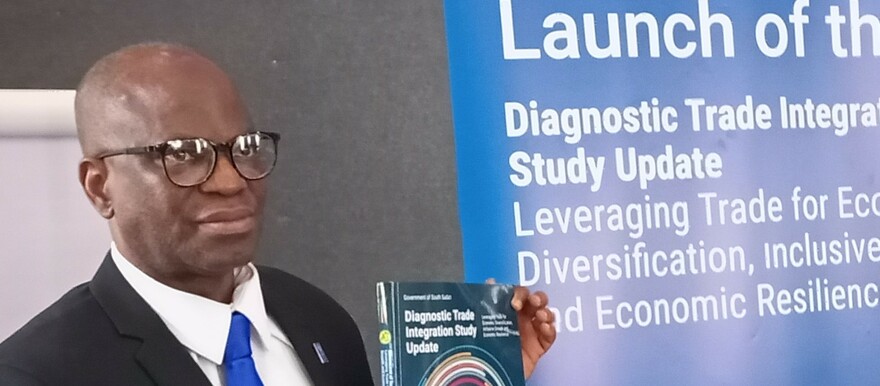As South Sudan struggles to fix its ailing economy, plans are underway to diversify from being oil-dependent.
South Sudan has identified other export products aside from oil to help boost economic diversification and the country on Monday launched the Diagnostic Trade Integration Study Update (DTISU) Report to foster trade and economic diversification strategies.
According to officials, the objective of the DTISU is to provide an up-to-date trade integration policy document that can stimulate the development of trade for South Sudan’s goods and services.
Simon Nyang Anei, a technical advisor at the National Ministry of Trade and Industry, said the initiative will help foster economic diversification in South Sudan.
“The identification and implementation of the strategies are expected to support the national economy diversification agenda, increase investment in the value-added initiative, and generate revenue from the non-oil sector,” he explained. “The launch of the DTISU is attached on the need to support the realization of the expected development outcome of the National Development Strategy (NDS) cluster.”
Meanwhile, Leo Okwahi Lole, the acting undersecretary at the trade ministry, said the launch of the study seeks to stimulate economic growth in the country.
“Through the DTISU action matrix, we seek to ensure macroeconomic stability to foster the growth and promotion of key productive sectors such as agriculture, tourism, mining and services,” he said. “The government intends to develop these sectors through targeted and innovative trade-related policies that address supply sites constraints to growth and use trade for peace and security.”
For his part, Yacoub Kenyi Leju, the head of procurement at the South Sudan Chamber of Commerce, said the country has identified other export products aside from oil to help boost economic diversification.
“South Sudan through the exercise of DTISU has identified products for exports for economic diversification. These include teaks, Gum Arabic, fish, shea butter, sesame, honey, and minerals,” he revealed. “However, we have to ensure that South Sudan equally benefits from her fair share of resources for fostering investment-led industrialization. This should be the underlying basis for our economic diversification.”
The Diagnostic Trade Integration Study (DTIS) Update Report is being supported by UNDP with funding from the Enhanced Integrated Framework (EIF) and in partnership with the Ministry of Trade and Industry.
The first DTISU was undertaken in 2014 and assessed South Sudan’s economy, identified key trade sectors, outlined constraints to trade, and presented an Action Matrix. The study provided a key analytical foundation for policy recommendations and interventions for Trade-Related Technical Policies.
According to the ministry of Trade, the emerging trade policy regime, the trade-related recommendations in the R-ARCSS, new strategies in the R-NDS 2021–2024, and the growing interest in integrating trade-related policies towards economic diversification, necessitated this update.
This Updated Report provides a further analytical assessment of the progress to date of South Sudan’s trade regime and capacity. It takes stock of the previous DTIS, measures progress, and identifies key strategies to address supply-side constraints to trade and attempts to remedy challenges around the development of inclusive and sustainable trade in South Sudan.




